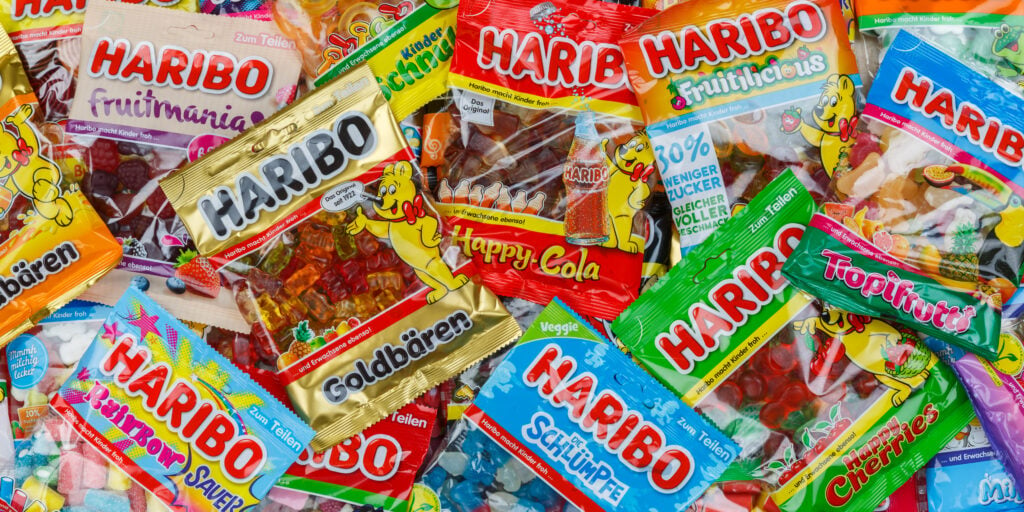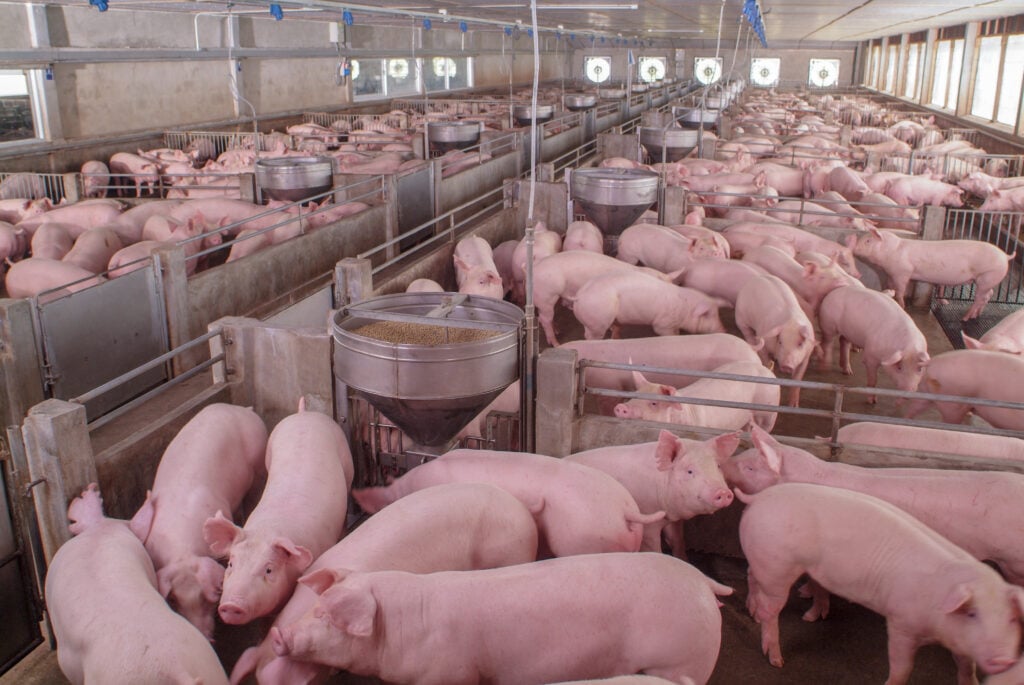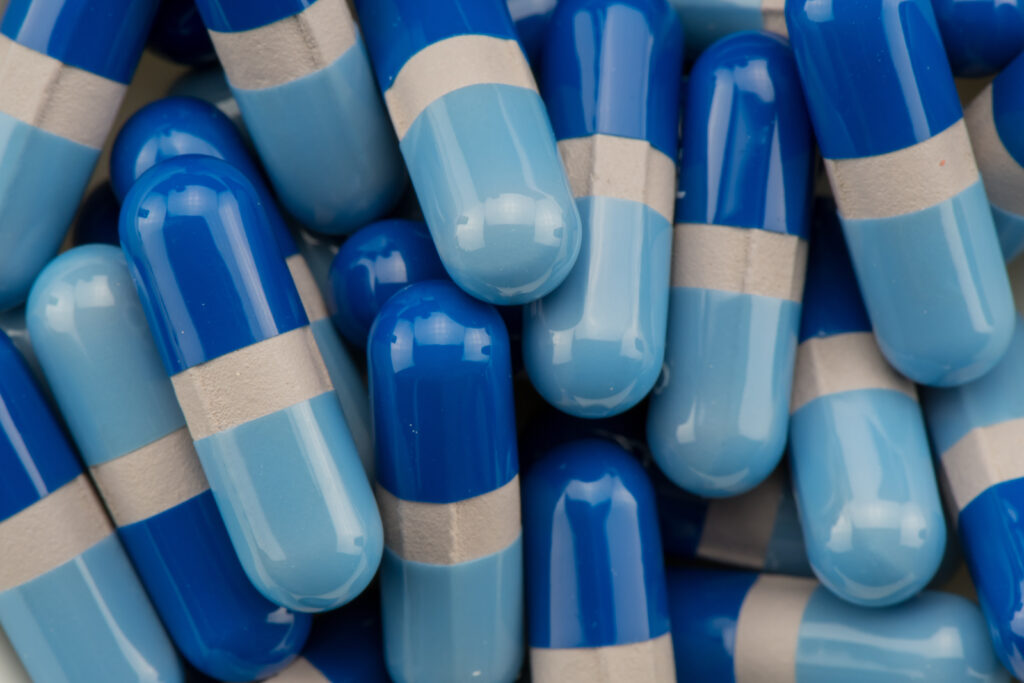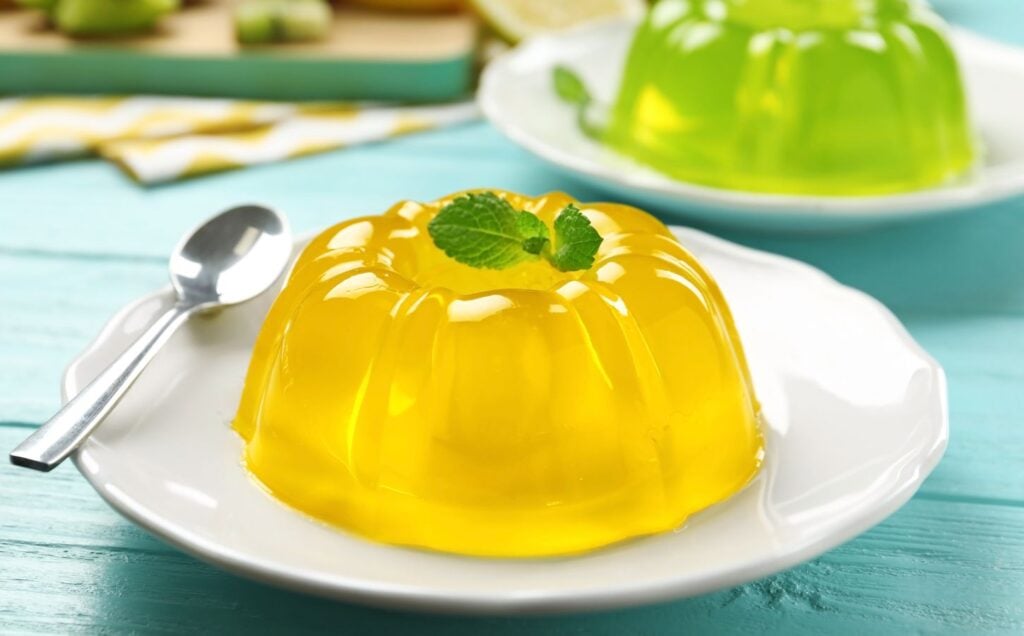Growing up, many of us will have happy memories of eating jelly, gummy sweets, and marshmallows. But the vast majority of kids – and many adults – have no idea that foods like these often contain a hidden (and stomach churning) ingredient: gelatin.
Gelatin, sometimes spelt gelatine, is found in a wide range of foods all over the globe. It gives products jiggly and jelly textures that have become hugely popular, and it’s used as a thickener in everything from frosting to paracetamol. Due to the fact that it’s not generally considered an allergen, it probably won’t be written on a food packet in bold. This means that it can often be hard to spot on ingredient lists, and some plant-based eaters may have mistakenly bought and eaten products containing it. But gelatin is not vegan, or even vegetarian, as it’s a direct product of animal exploitation.
Here’s everything you need to know about gelatin.
What is gelatin?

Gelatin is a protein found in animal body parts, which is obtained by boiling these parts with water. Bones are often used in its production, as well as skin, ligaments, and tendons. The majority of gelatin that humans eat stems from farmed animals, mostly cows and pigs. Fish skin and scales are also sometimes used.
To many, it would seem almost unbelievable that such a grisly production process is so widespread in so many foods. But unexpected animal parts have been used as ingredients for many years. It’s thought that the first person to discover gelatin was a French physicist named Denis Papin, one of the forerunners of the steam cooker. In 1682, he discovered a method to remove collagen from animal bones by boiling them. It wasn’t until the mid 19th century, however, that gelatin powder processing was developed and patented.
Is gelatin cruel?
Gelatin is a product of the animal agriculture industry, which is widely considered to be cruel. Around 80 billion land animals are farmed and killed each year, the majority of whom are raised on factory farms and killed in painful ways. Pigs, whose parts are frequently used in gelatin production, suffer terribly in the farming system. In the UK, around a third are raised in intensive conditions, but even those who aren’t will still spend most of their time indoors.
The vast majority (around 86 percent) of pigs will be gassed to death with a high concentration of carbon dioxide when they reach the slaughterhouse. While the industry often describes this process as “humane,” the gas forms a carbonic acid on wet surfaces it touches – like the pigs’ eyes, lungs, and throats. Experts have stated that they “burn from the inside out,” and it can take them several minutes to die.

A growing number of cows are also being farmed intensively, and a recent UK investigation found that many were suffering injuries like hoof problems, mastitis, and bacterial infections while being forced to live in barren sheds. At the slaughterhouse, they will be stunned with a captive bolt pistol and have their throats cut.
The animal parts used in gelatin production will often be obtained from slaughterhouses. Gelatin is often considered to be a byproduct, and it’s true that it is sometimes made from spare parts of animals slaughtered for meat. Gelatin, however, is a USD $6 billion industry in its own right, and animals may be killed explicitly for it. It would be a mistake, therefore, to assume that all gelatin is a waste product that would otherwise be put to no use.
What is gelatin used for?
Gelatin is perhaps best known for being a key ingredient in a variety of candies and desserts. Jell-O is a key example, as well as gummy sweets, marshmallows, and some cakes, ice creams, and puddings.
It’s also used as a thickening agent in some gravies, cake icings, cream cheeses, soups, and sauces. Some chewing gum brands feature gelatin, and it’s also occasionally present in drinks.
Gelatin in medicine

Gelatin is also used as an ingredient in certain medicines. Paracetamol that comes in capsules is a key example, as gelatin is used to give the capsule its soft texture. If you are a vegan and concerned about gelatin in your medicine, there are often alternatives available at drug stores that don’t use it. If you are unable to locate these alternatives, however, that doesn’t mean you should discontinue taking your medicine. Being vegan is about avoiding animal products where possible, and it is sometimes impossible to avoid animal ingredients in vital medication.
Can you get vegan gelatin?
There are an increasing number of plant-based alternatives to gelatin, meaning it’s now easier than ever to enjoy our favorite foods without worrying about the ingredient.
One popular gelatin alternative is agar-agar, which is derived from seaweed. This ingredient can be used in a variety of desserts in gelatin’s place. Xantham gum is also a widely used alternative thickening agent, while carrageenan is put in marshmallows and jello.
—






